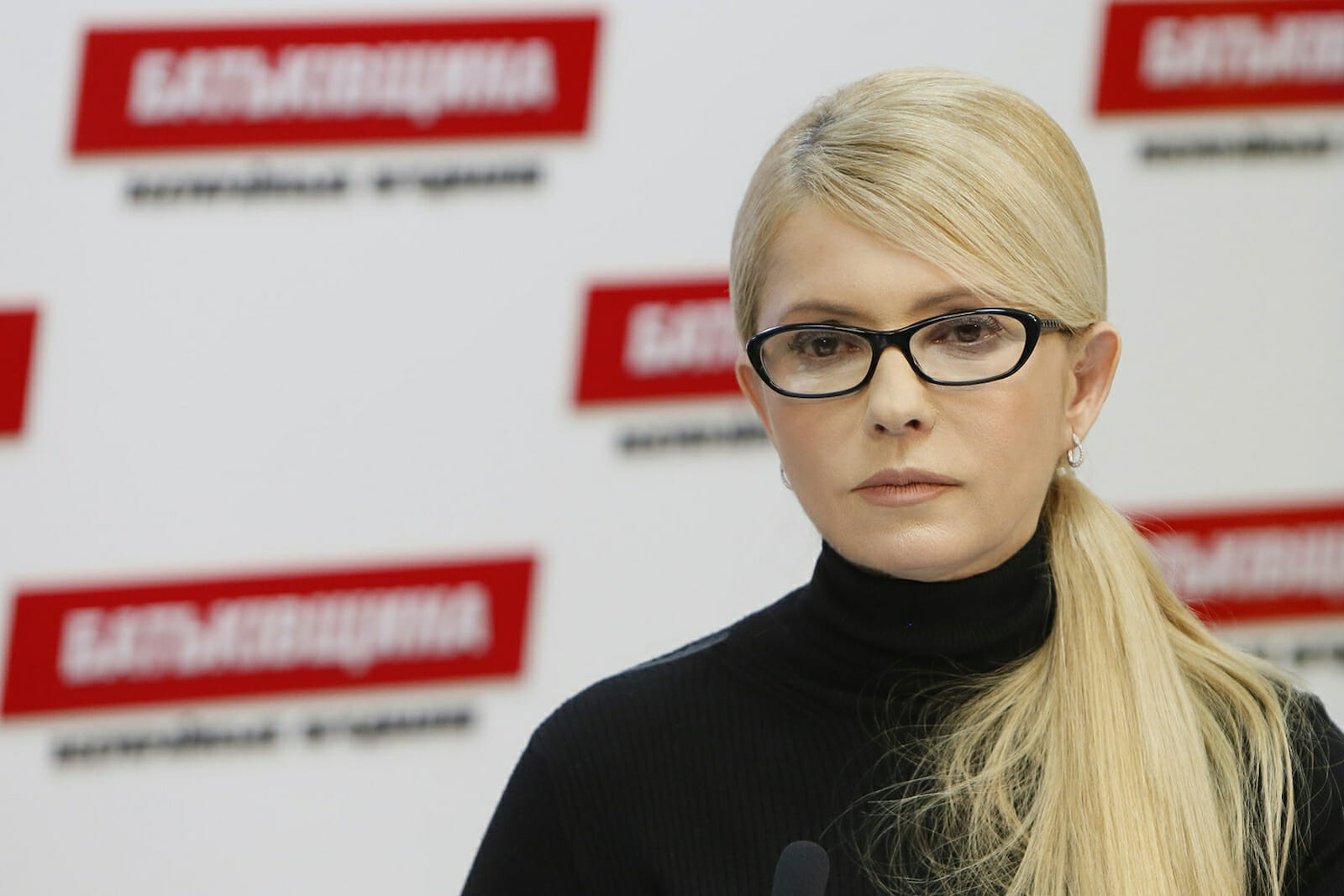
The Case for Tymoshenko
Former Ukrainian Prime Minister Yulia Tymoshenko had scarcely made it out of prison, where she had spent the last 2 and half years on politically motivated charges courtesy of Viktor Yanukovych, before international media outlets went wild. The image of Tymoshenko, going straight from jail to the stage in front of victorious Euromaidan crowds was iconic, to say the least. While Western leaders applauded her release alongside the broader shift of power in Kyiv, articles attacking the former Prime Minister’s image and anti-corruption credentials were just as present. “She’s no angel,” read Christopher Dickey’s piece in The Daily Beast, while Caroline Holmund in Foreign Policy Journal detailed Tymoshenko’s “close relationship with Pavlo Lazarenko” throughout her business career, calling her guilty by association.
There is no question that Tymoshenko has been and always will be divisive, sparking admiration among millions as well as anger from her detractors, a sort of Ukrainian Hilary Clinton. The fact is that Yulia Tymoshenko is a complex character; she is perhaps the only woman to successfully navigate Ukraine’s cutthroat post-independence business world and come out on top, and doubtless the most charismatic political figure in Ukraine today. While articles that raise questions about Tymoshenko’s past career deserve to be read, it is always easier to tear things down than build them up in the new media age. More than anything, such articles negate the positive case that can be made for Tymoshenko.
Breaking the cycle
Throughout its modern history, Ukraine has been run by a remarkably opportunistic – you could call them ‘pragmatic’ – group of business/political elites, where trade-offs and crisscrossing conflicts of interest are not only tolerated but are an essential part of forming a government.
Tymoshenko’s rival candidate for the Ukrainian Presidency, Petro Poroshenko, fits this mold perfectly. Elected to parliament in 1998 alongside Kremlin-backed President Leonid Kuchma, Poroshenko quickly switched sides following the Orange Revolution and, in 2004, became secretary of the National Security and Defense Council under President Viktor Yushchenko.
Ten years later, he was back in the rival Party of Regions as Minister of Economic Development and Trade under the recently deposed and massively corrupt President Viktor Yanukovych.
Though Yushchenko and Tymoshenko were the dual figureheads of the Orange Revolution, the former quickly adapted to the status quo once in office. As Tymoshenko, herself stated, “the oligarchs had adopted a new president.” Again, much of this was the work of Poroshenko, colloquially referred to as “Yushchenko’s wallet” for his political spending. Poroshenko quickly clashed with then-Prime Minister Tymoshenko, and the latter was promptly dismissed from the government.
The most powerful argument for Tymoshenko is that she is one of the few politicians that could possibly shake the oligarchical system effectively controlling the state. After all, she has already campaigned against the oligarchs and paid for it with two and a half years of her life. Poroshenko, on the other hand, seems to be cut from the same cloth as other opportunistic oligarchs. “We have got clans that have been working for many years,” Tymoshenko recently stated. “The clan of Poroshenko is one of them.”
Bringing an end to the crisis
Beyond the corruption that has plagued the Ukrainian state, however, an even more urgent matter is the security crisis in the country’s south and east. If the last few weeks are anything to go by, civil war and/or full-scale Russian invasion seem imminent. Ukraine’s next President must be able to address this situation and must be able to present a workable solution to the current crisis.
One of Yulia Tymoshenko’s most important foreign policy assets is that she understands Vladimir Putin. Whereas Western leaders, from Barack Obama to Angela Merkel, continually find themselves outplayed by the Russian strongman, Tymoshenko was part of a select group of foreign leaders that Putin respected.
Indeed, the Russian President famously called her “the only man in Ukrainian politics.” Following events in Crimea and now elsewhere in Ukraine, it should be clear that Russia would only back down when faced with strong, organized opposition. Tymoshenko is a leader that has already proved her ability to deal with Putin on the global stage and, unlike much of the Ukrainian political/business elite, is not in his pocket.
Moreover, resolving the Ukrainian crisis will necessitate dialogue between the notoriously divided East and West of the country. Tymoshenko has already been involved in talks with Ukrainian separatists, and, crucially, recognizes that such regions feel neglected and threatened by the recent government shuffle in Kyiv. Hailing from Eastern Ukraine herself and only learning Ukrainian in her adult years, Tymoshenko can and should play a strategic role in bringing her country together. She has stated that she would allow greater independence to the Eastern and Southern regions but stop short at federalization and, above all, would uphold Ukraine’s territorial sovereignty.
Poroshenko, on the other hand, seems dangerously naïve when quizzed on the subject. Quoting dubious statistics, the ‘Chocolate King’ – a nickname stemming from his confectionary empire – claimed that “80 percent of the population in the east and the south support the government’s antiterrorist operation” and that a Russian invasion will never happen because “people in Russia will not support that.” In reality, Putin’s recent military incursion has been overwhelmingly popular among his countrymen. Refusing to engage with Russia or the Ukrainian communities that feel disenfranchised would be a sure step towards civil war, Russian invasion or both.
Tymoshenko’s campaign for the Presidency is an uphill battle. Poroshenko and his business allies control all the country’s main media outlets and the fact that his record is little known internationally plays in his favor. Politics is rarely predictable in Ukraine, though, and if this writer can be convinced by the case for Tymoshenko, perhaps the Ukrainian people can as well.

